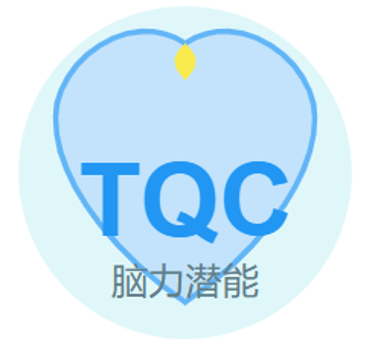特别的限时优惠。立即行动!
Special Limited-Time Offer. Act Now!
What Your TQC Brain Map Says About Decision-Making
Why do some teens crave adventure while others play it safe? TQC Genius Brain Analysis explores the neuroscience behind teenage risk-taking and decision-making styles.
Nicole
10/8/20253 min read


Being a teenager often means navigating a world full of new experiences, challenges, and, let's be honest, temptations. From trying out for a challenging sports team to speaking up in class, from planning an ambitious project to, yes, perhaps considering a dare, decision-making and risk-taking are central to adolescent life.
But why do some teenagers seem to gravitate towards adrenaline-pumping activities, while others prefer to stick to tried-and-true paths? Why does one friend make impulsive choices, while another meticulously weighs every pro and con?
It's not just about "being brave" or "being shy." A significant part of the answer lies in the incredible, still-developing machinery of your brain, and how its unique wiring influences your approach to risk. TQC Genius Brain Analysis can shed light on these fascinating differences, providing a personalized understanding of your decision-making blueprint.
The Teenage Brain: A Work in Progress
Before diving into TQC, it's crucial to understand a bit about the adolescent brain. The prefrontal cortex, responsible for executive functions like planning, impulse control, and assessing consequences, is still maturing throughout your teenage years (and even into your mid-20s!). Simultaneously, the limbic system, associated with emotions and rewards, is highly active. This combination often leads to a natural inclination towards exploring new things and a heightened sensitivity to rewards.
However, even within this developmental stage, individual brains have distinct predispositions.
TQC Insights into Risk & Decision-Making
TQC Genius Brain Analysis helps demystify your personal approach to risk by examining several key brain functions:
Impulse Control & Forethought:
TQC Insight: Some profiles show a natural strength in inhibiting immediate urges and considering long-term consequences. Others might have a more spontaneous "act first, think later" tendency.
Impact: This affects everything from blurting out an answer in class to making a snap decision about trying something potentially dangerous.
Reward Sensitivity:
TQC Insight: Certain brains are highly motivated by potential rewards (e.g., social acceptance, a thrill, a personal achievement), making them more willing to take risks to achieve those rewards.
Impact: A high reward sensitivity might make a student more likely to try out for a play, even with stage fright, because the applause (reward) feels worth the risk.
Risk Perception & Aversion:
TQC Insight: How your brain processes potential negative outcomes varies greatly. Some individuals are naturally more risk-averse, meticulously calculating potential dangers. Others might downplay risks or be less fazed by uncertainty.
Impact: This influences whether you'd rather stick to a comfortable routine or seek out novel, potentially challenging experiences like learning a new extreme sport.
Logical vs. Intuitive Decision-Making:
TQC Insight: Do you rely more on data and reasoned analysis (logical thinking) or on gut feelings and instinct (intuitive thinking) when faced with a choice?
Impact: A logical decision-maker might research every aspect of a club before joining, while an intuitive one might join based on a "good feeling" after a brief conversation.
Leveraging Your Decision-Making Style
Understanding your TQC Brain Map isn't about labeling you as "good" or "bad" at risk. It's about empowering you to make more conscious, effective choices:
For the "Risk-Taker": If your TQC shows a strong inclination towards impulsivity or high reward sensitivity, you can learn strategies to pause, consider consequences, and harness that energy for positive, calculated risks (like starting a business or speaking up for a cause).
For the "Cautious Planner": If your TQC points to a more risk-averse or analytical nature, you can learn to distinguish between genuine dangers and opportunities where a calculated leap of faith could lead to immense growth. You can also leverage your planning skills to mitigate risks.
Your teenage years are a crucial time for developing your decision-making skills. By understanding the neuroscience behind your unique approach to risk through TQC Genius Brain Analysis, you gain invaluable insight. This self-awareness allows you to better navigate the complexities of adolescence, make choices that align with your true self, and confidently shape your future.
TQC 评估
个性化评估助力职业与教育发展
深入了解孩子的天赋优势
助力个性化成长与未来发展
Personalized assessments empower career and educational advancement, providing deep insight into a child's natural talents to foster individualized growth and future development.
地址
Address
订阅我们的电子报
Subscribe To Our Newsletter
© 2025. TQC Genius Brain. All rights reserved.
13a-3a, 3rd Mile Square,
Jalan Klang Lama,
58000 Kuala Lumpur.
重要链接
Important Links
博客 / Blog
隐私政策 / Privacy Policy
服务条款与条件 / Terms & Condition
医疗免责声明 / Medical Disclaimer
